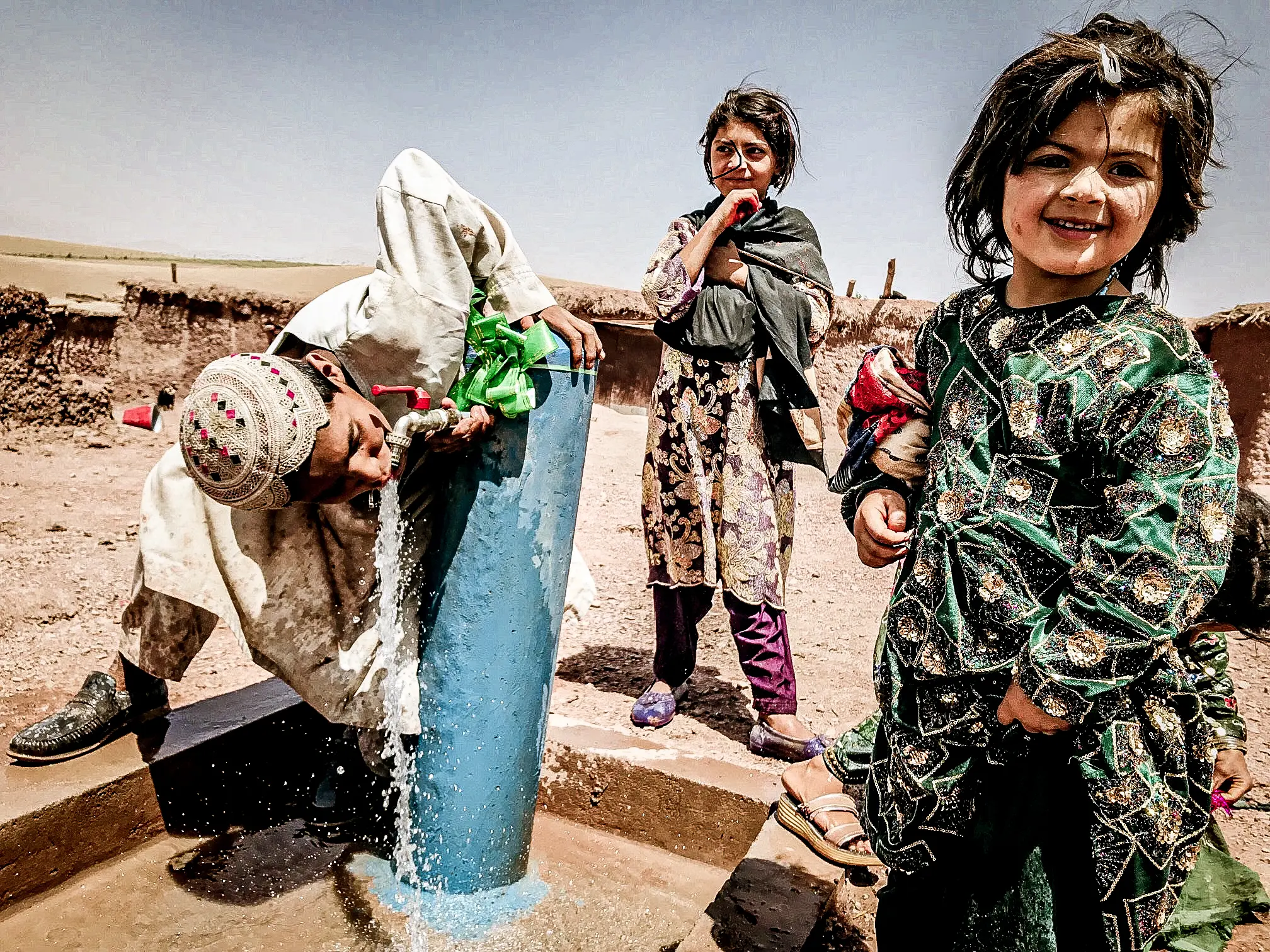Turning water scarcity into lasting sustainability

In a country where natural disasters threaten millions, Medair responds to urgent humanitarian needs and promotes sustainability in Afghanistan.
A growing water crisis
Medair has been working in Afghanistan since 1996, responding to emergency needs and supporting vulnerable communities. This year, almost 22.9 million people in the country (nearly half the population) will need humanitarian aid, and 21 million require urgent Water, Sanitation, and Hygiene (WASH) assistance.
Afghanistan is highly vulnerable to natural disasters, including earthquakes, floods, droughts, landslides, and avalanches 1. Following the worst drought on record in 30 years (in 2021 and 2022), several consecutive years of drought-like conditions have left families struggling with water stress and wide-spread water scarcity.
Medair’s response
For more than two decades, Medair has built water points in remote and drought-affected areas in Afghanistan. Alongside construction, we equip local Water User Committees (WUC) with training based on the Water Safety Plan approach, empowering them to manage and maintain resources.
Today, Medair continues to respond to urgent needs by building gravity-fed and solar-powered water networks, helping vulnerable communities access safe, reliable and sustainable water.

Is Medair’s work sustainable?
In 2024, Medair commissioned an independent evaluation to assess the durability of its water points and functionality of the Water User Committees. The aim was to identify factors affecting the sustainability of WASH interventions, and how to strengthen them. A sample of water points built between 2016–2021 were assessed across three provinces.
The results were very encouraging:
- 90% of protected springs were still functioning
- Environmental factors (such as drought and declining water levels) were the primary cause of most failures
- An average of 3 out of 4 Water User Committee members were still active and known in the community
- Most respondents were satisfied with water quality
The positive impact is clear. Jamel, a community member from the Central Highlands region where Medair has provided WASH services, told us, “We experienced seven years of consecutive drought, leading to severe water scarcity for drinking, washing, and livestock needs. We had to travel long distances to collect water, causing distress among the people in this area. Even during spring, when water for cultivation is most needed, there was not enough. Now, thanks to you, we’re in a better place, worry-free about water scarcity.”

Looking ahead
Medair is committed to tackling Afghanistan’s water crisis by:
- delivering reliable access to safe water
- improving water management during floods
- strengthening drought resilience in local watersheds
The results of this study give confidence that these improvements will continue to have a lasting impact.
Rahim, a Medair staff member, said, “Medair has a long history of providing WASH assistance to the people of Afghanistan. Our comprehensive programme includes safe drinking water, hygiene promotion, and disease prevention practices. I take pride in our sustainable approach, which actively engages community members, particularly women. We focus on transferring knowledge about water point maintenance to local people, ensuring they can continue to care for these resources after Medair leaves.”
1 Afghanistan Humanitarian Needs and Response Plan.
Pseudonyms have been used for the people mentioned in the article to protect their identities.
This content was produced with resources gathered by Medair field and headquarters staff. The views expressed herein are those solely of Medair and should not be taken, in any way, to reflect the official opinion of any other organisation.
%20(1).webp)
%20(2).webp)
.webp)